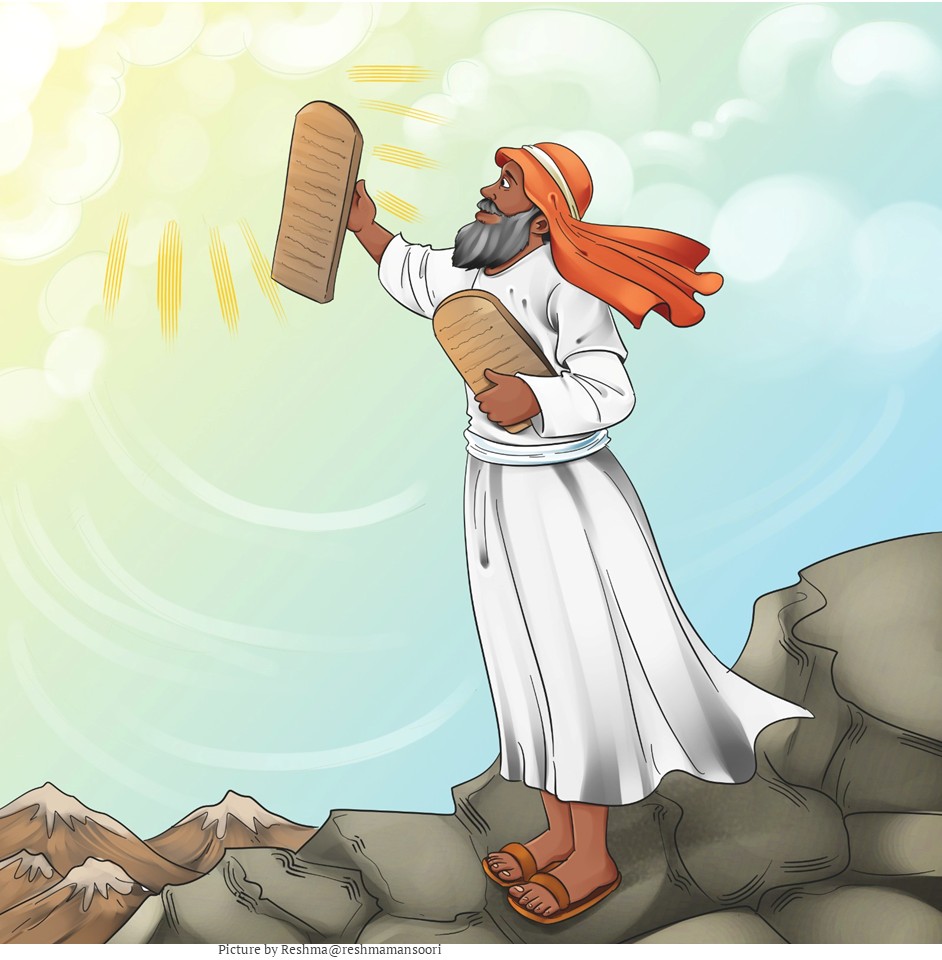Click here to follow on Facebook and Pinterest.
After the Israelites crossed the Red Sea, they were overjoyed. They danced and sang and praised the Lord. But they still had a long journey to the land God had promised them. Moses led them through the desert for three days, and in that time, they came across no water. Instead of looking forward to what God had promised, they started looking backward and thinking about Egypt.
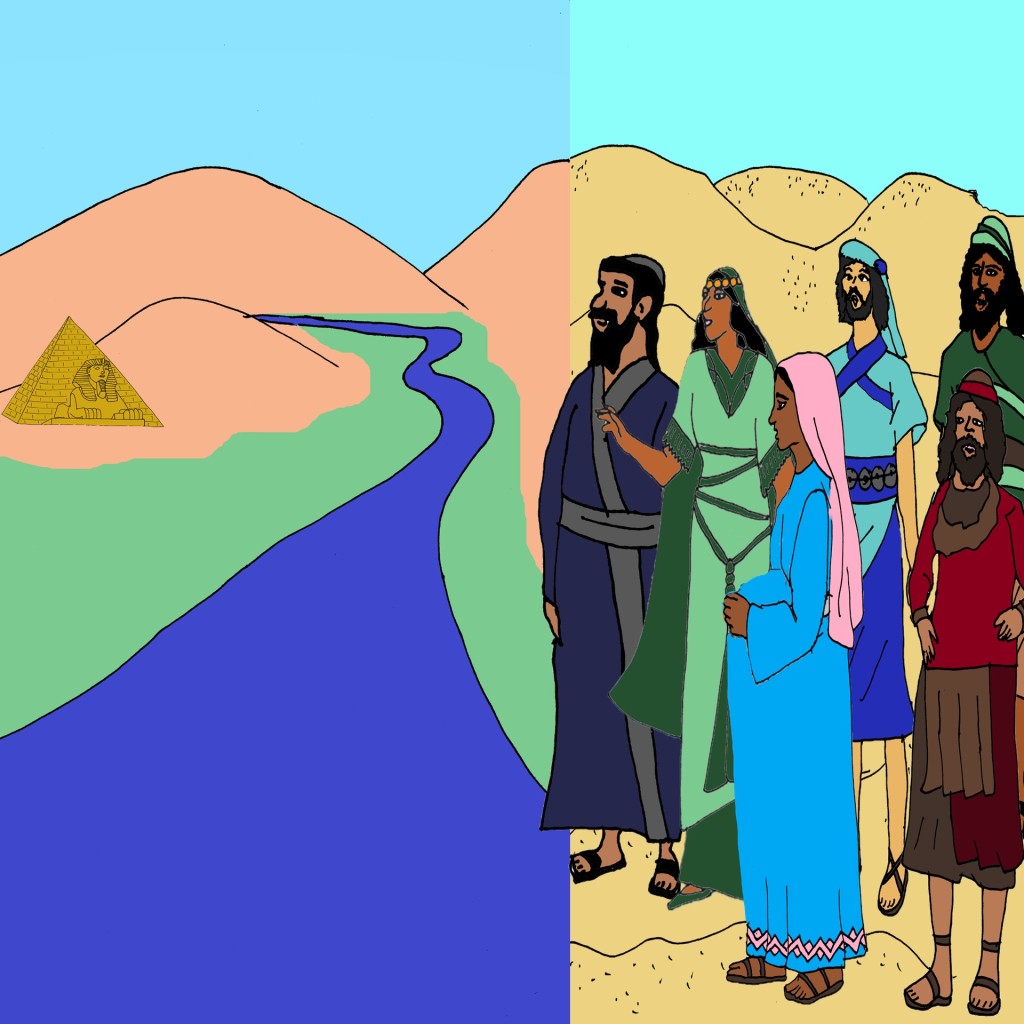
When they finally found water, they rushed to drink it, but it was no good for drinking, like seawater. The people named the place Marah, which is Hebrew for bitter. The people complained to Moses, asking him what they would drink.
“What do I do?” Moses asked God.
“Throw a piece of wood into the water,” was the reply.
Moses obeyed and the water became drinkable.
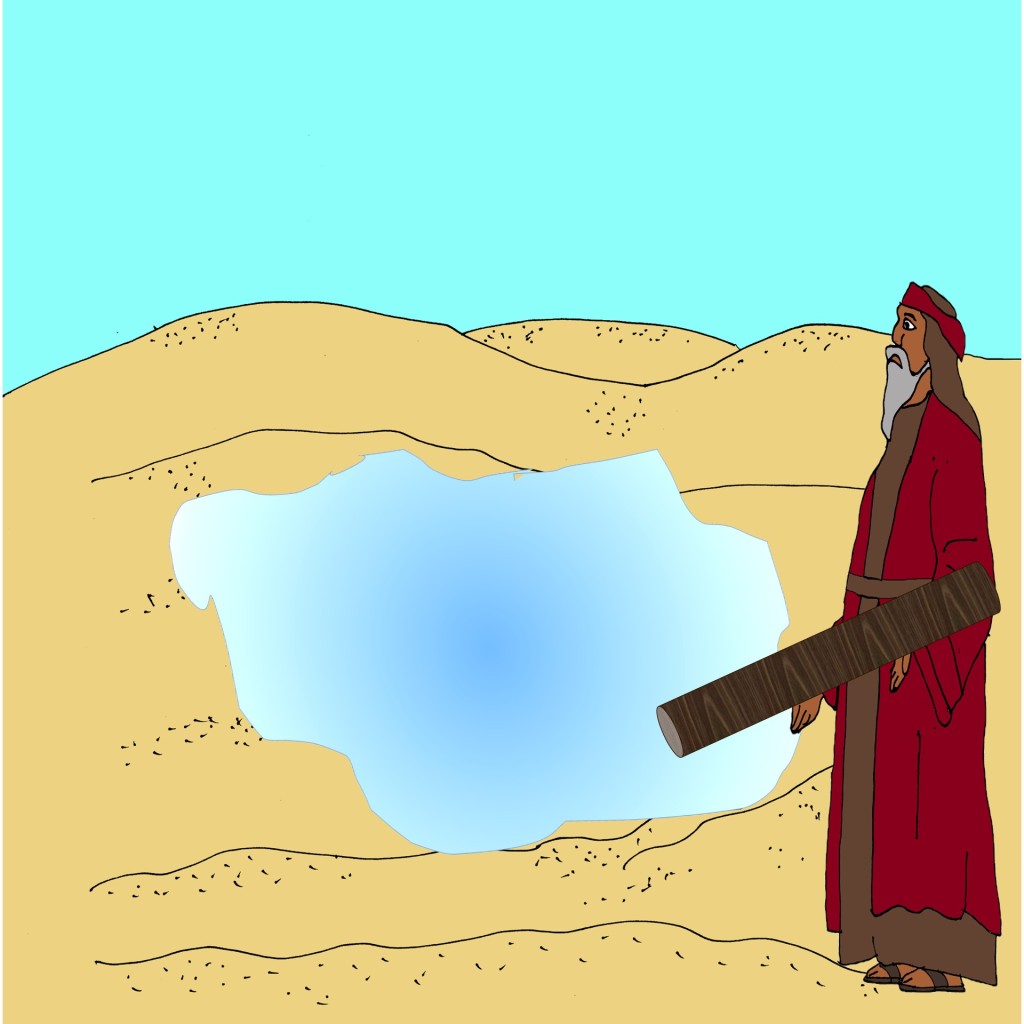
After satisfying their thirst and filling up all their containers with water, the Israelites began to travel again. It was not long before they began looking backward at Egypt again, and forgetting about the promises God had made.
As their food began to run out, the people complained to Moses and Aaron, “In Egypt we may have been slaves, but at least we had food. Why did God bring us out to the desert to die. Couldn’t He have let us die in Egypt instead and saved the trip?”
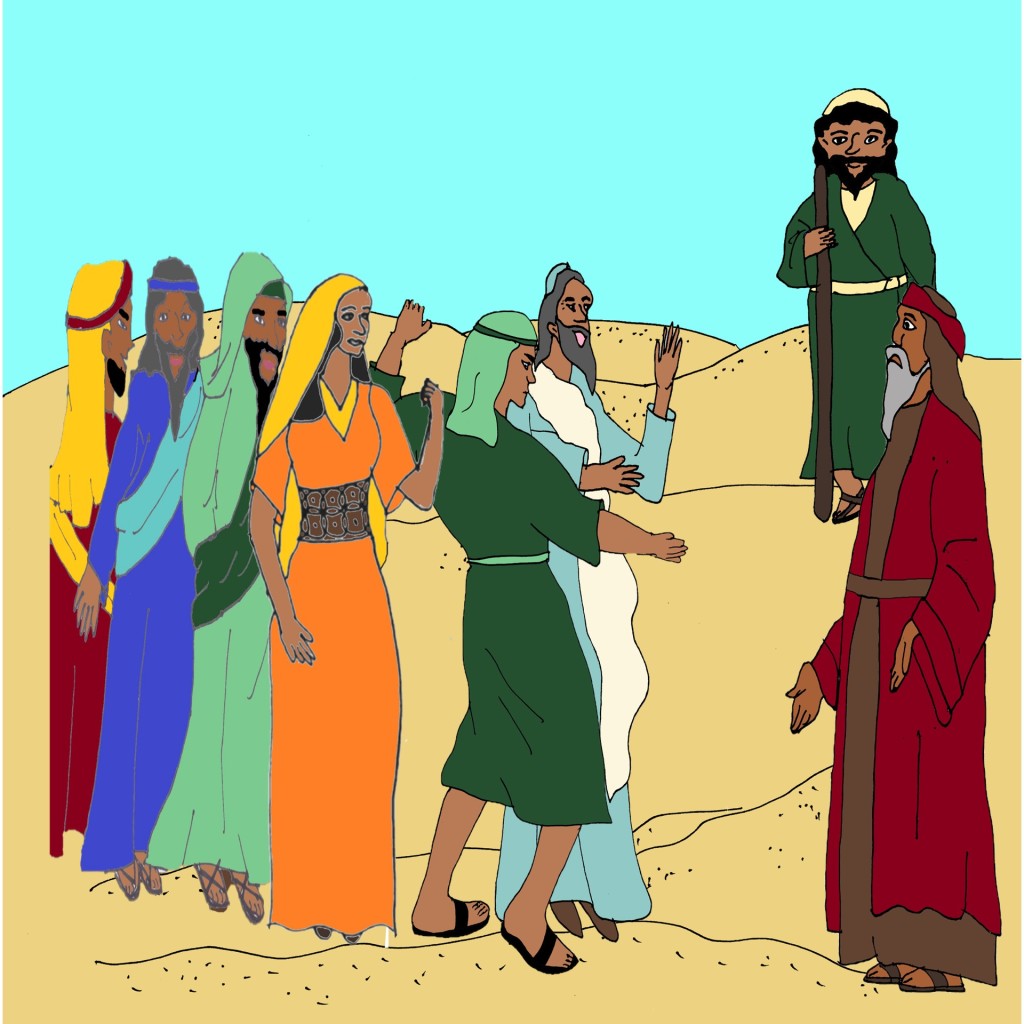
That evening God sent the Israelites a dinner of quail. In the morning, a strange grain covered the ground. No one knew what it was, so they called it Manna, which means, “What is it?”
Centuries later, Jesus would compare Himself to this Manna, because like Him, it came down from Heaven to save a hungry people.
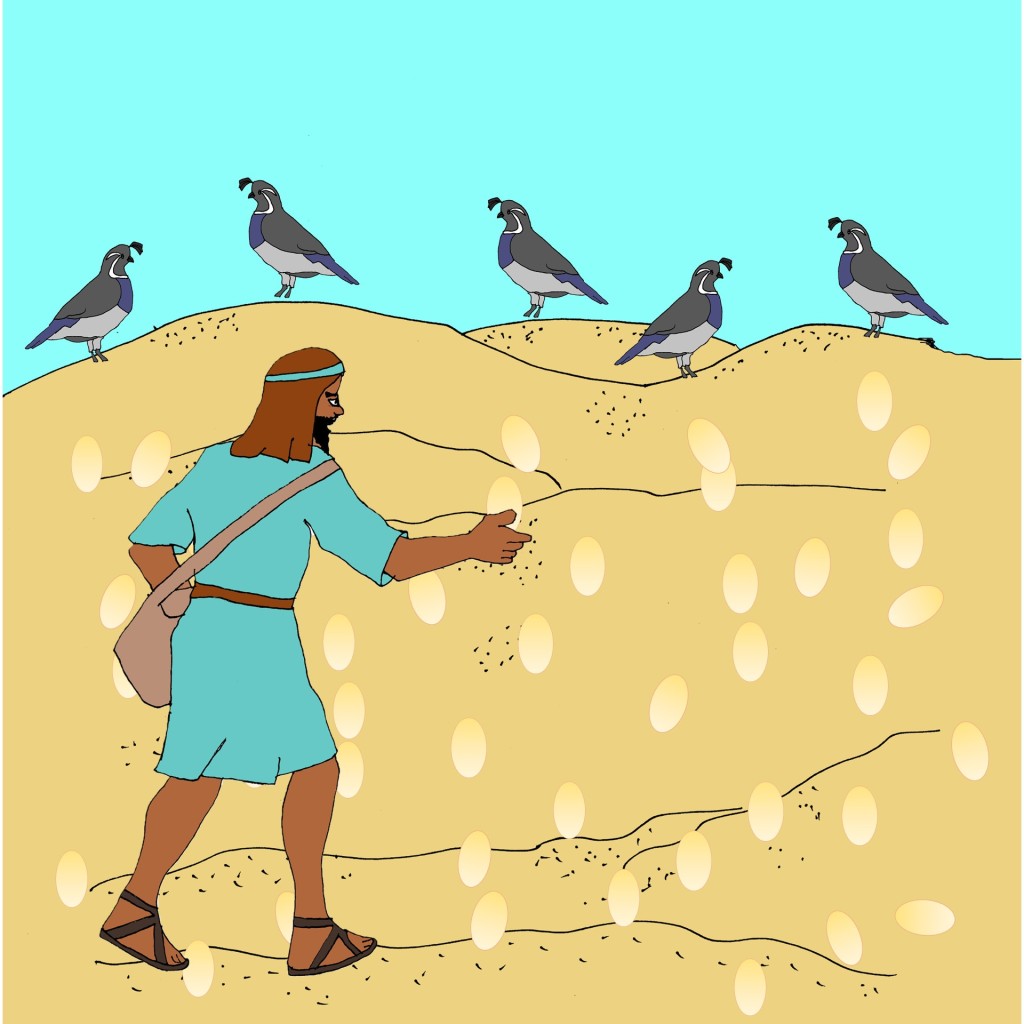
Moses told the people they had to show their faith in God by only taking what they needed for the day and waiting until the next morning to collect more. But some of the Israelites disobeyed, waking the next morning to the nauseating smell of rotting Manna, disgusting-looking and covered in worms. The only day God allowed them to collect more than a day’s worth was the day before the Sabbath, their day of worship, because He wanted them to rest the next day.
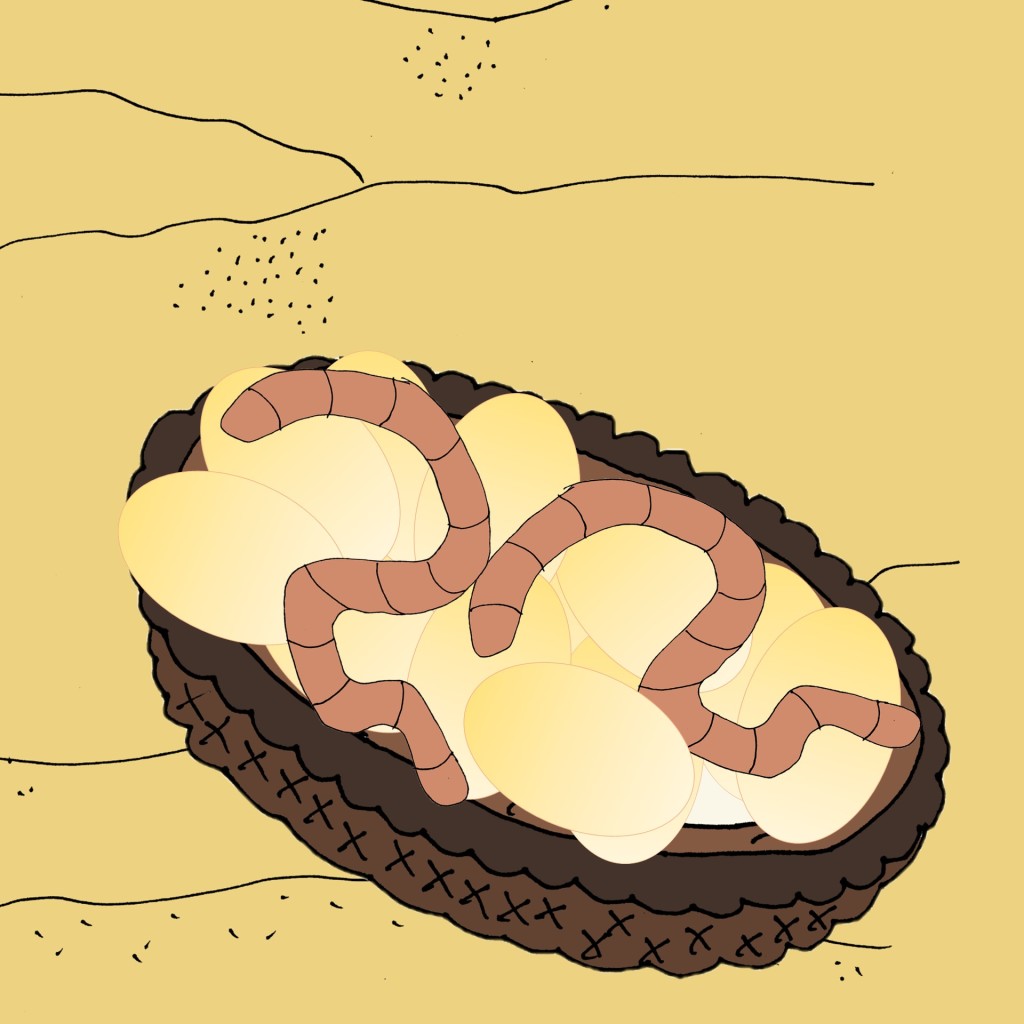
The Israelites continued traveling, moving out of the desert and toward Mount Sinai. They would camp in a new place each night-wherever God told Moses to stop. As they camped close to the mountain, they could find no water to drink anywhere.
Just like before, the Israelites started looking back at Egypt, remembering only the good things, and forgetting how hard their lives there were.
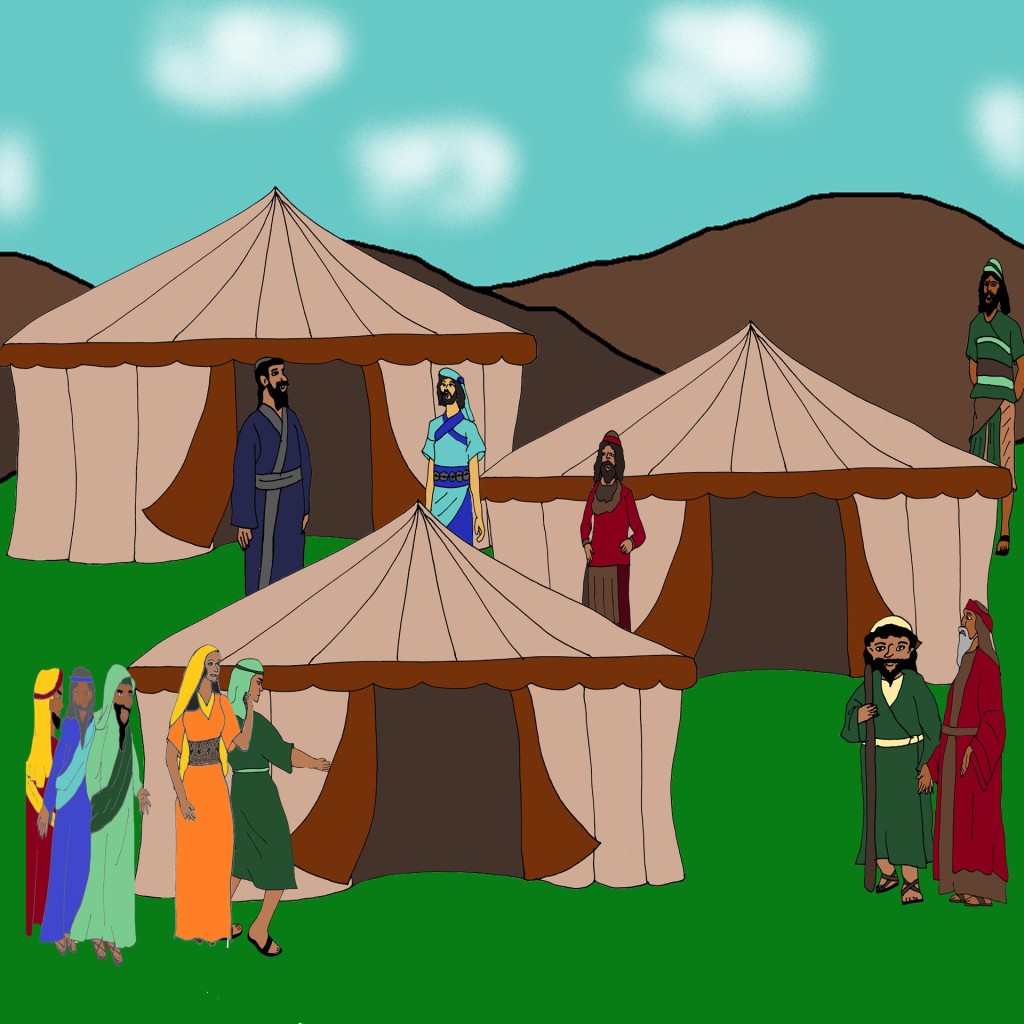
“Did God bring us here to let us die of thirst?” they complained. “What was the point of even leaving Egypt if God doesn’t give us water?”
“Why are you testing God?” Moses argued with them. “Haven’t you seen what He did before? You should know by now He will provide you with water!”
God told Moses to strike the rock at the foot of the mountain with his walking stick. Water gushed out for all the people to drink.
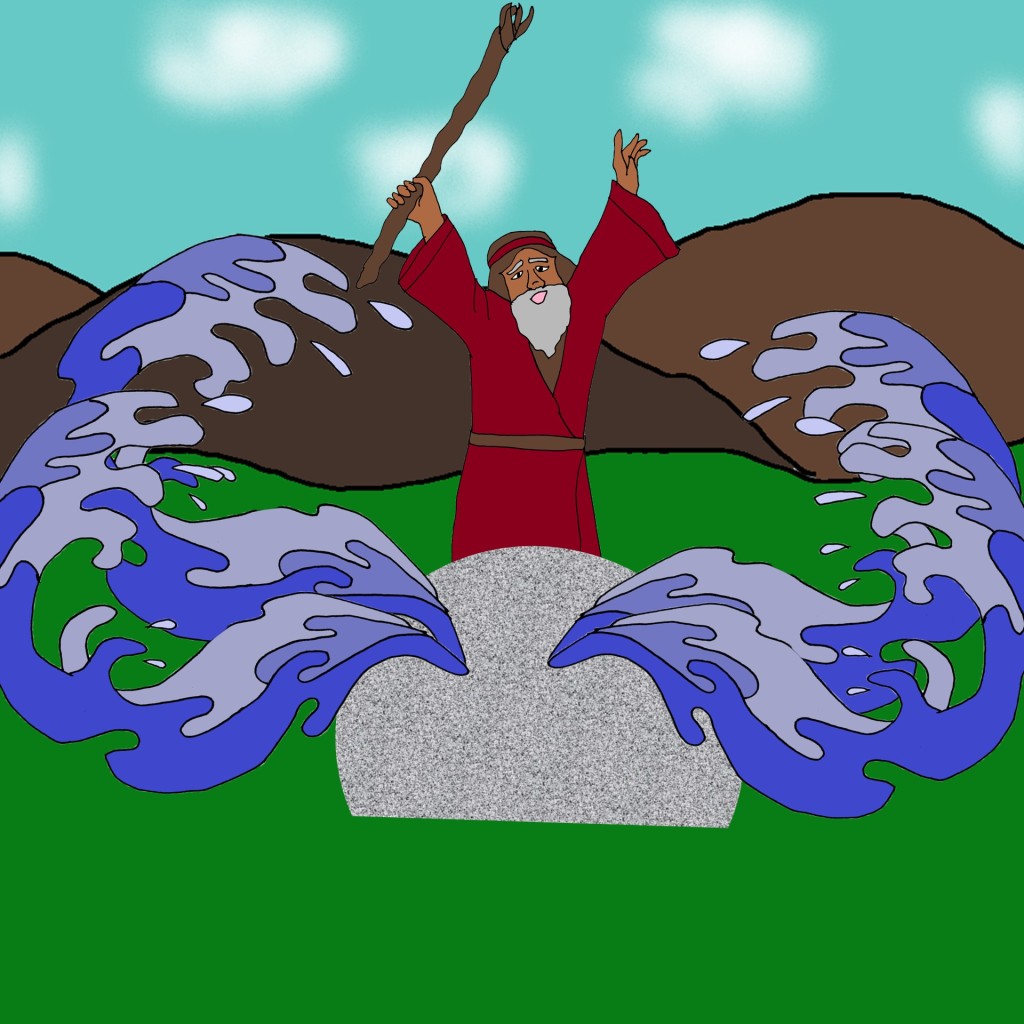
Anyone would have reason to fear being trapped in the desert with no water. Anyone would prefer to be a slave with food, water and a roof than be exposed to the burning sun of the desert. But the Israelites weren’t just anyone. They were God’s people.
Rather than remembering Egypt as it really was, and traveling forward as they worshipped God, the Israelites had chosen to adore the past. They could not stop looking backward. But soon, God would give them the rules they needed to focus on the future.
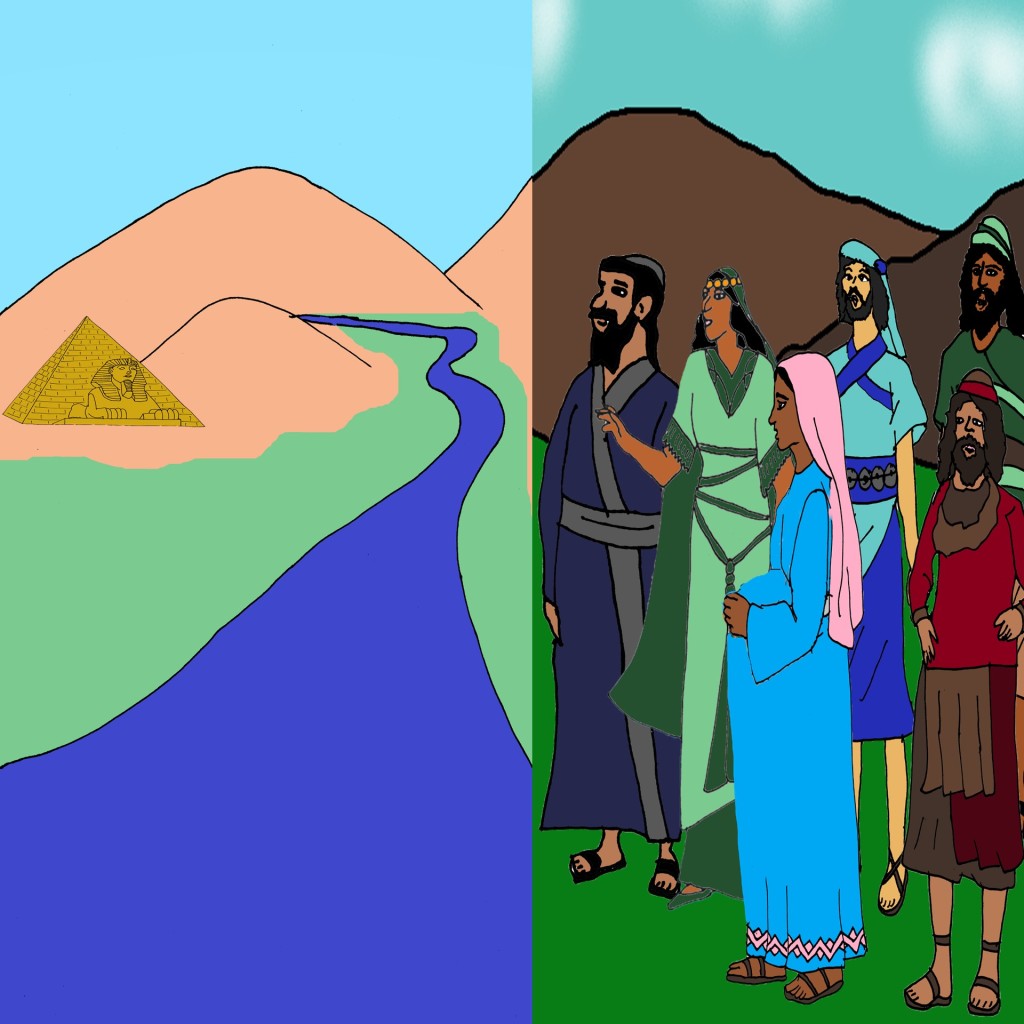
Activities
Whole Group & Preschool
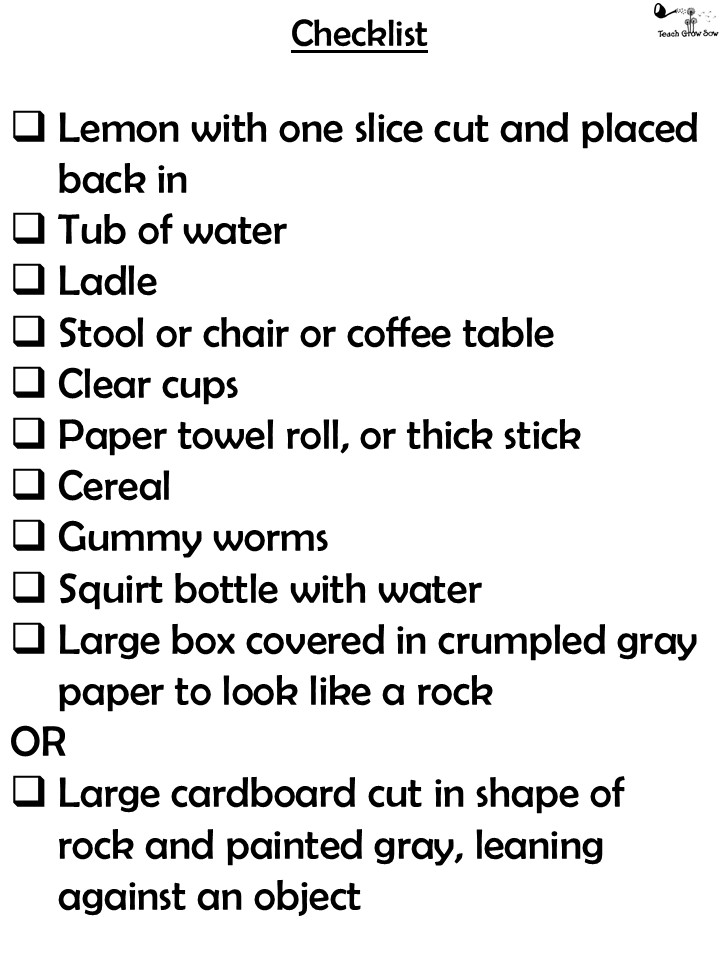

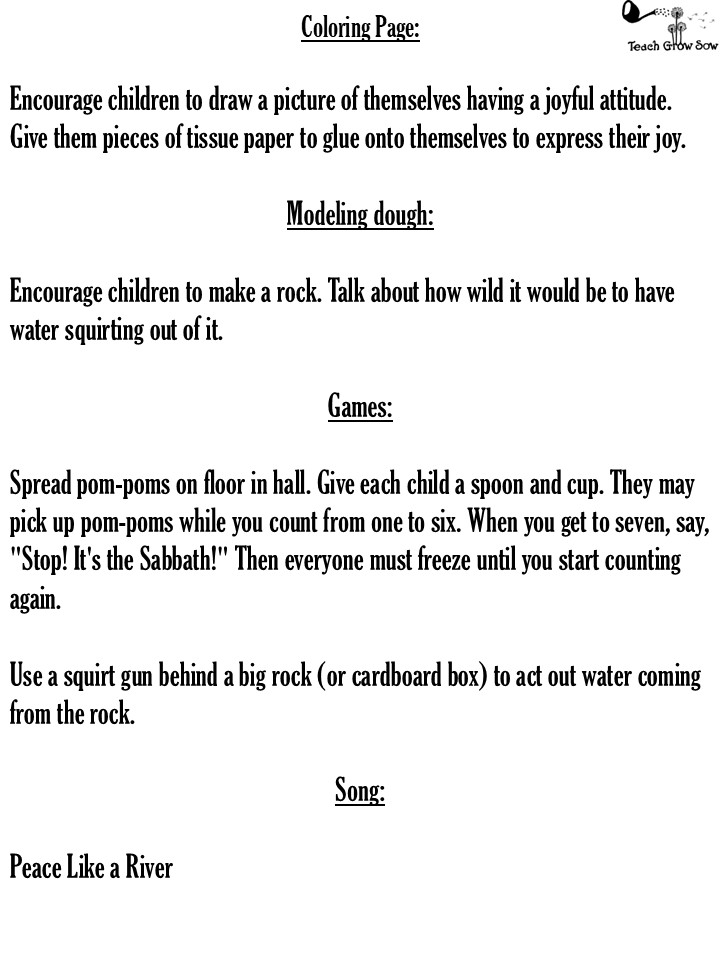
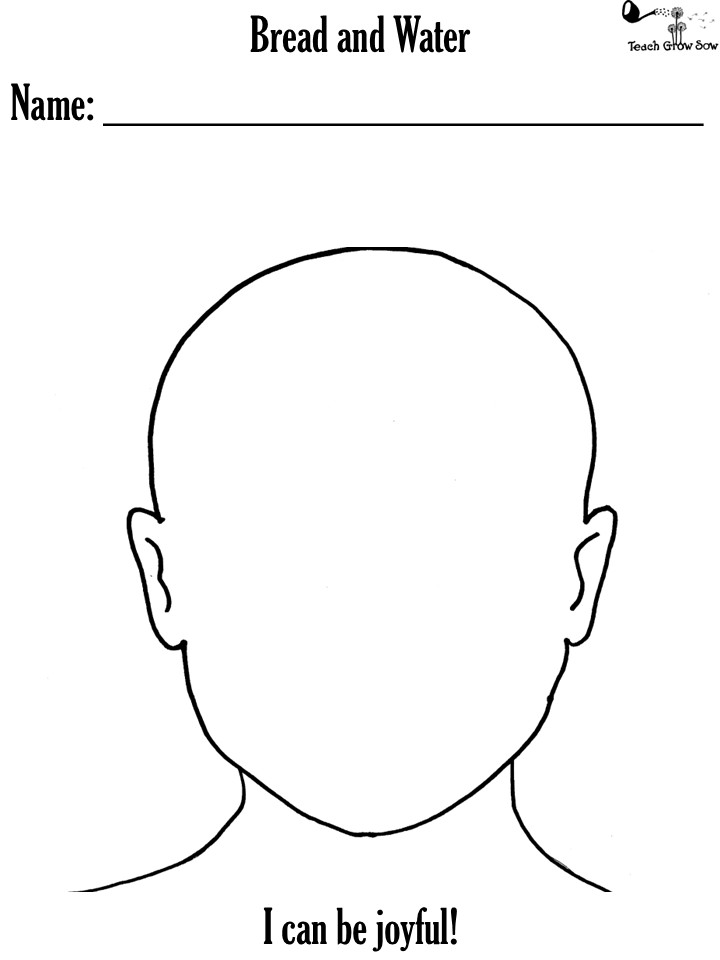
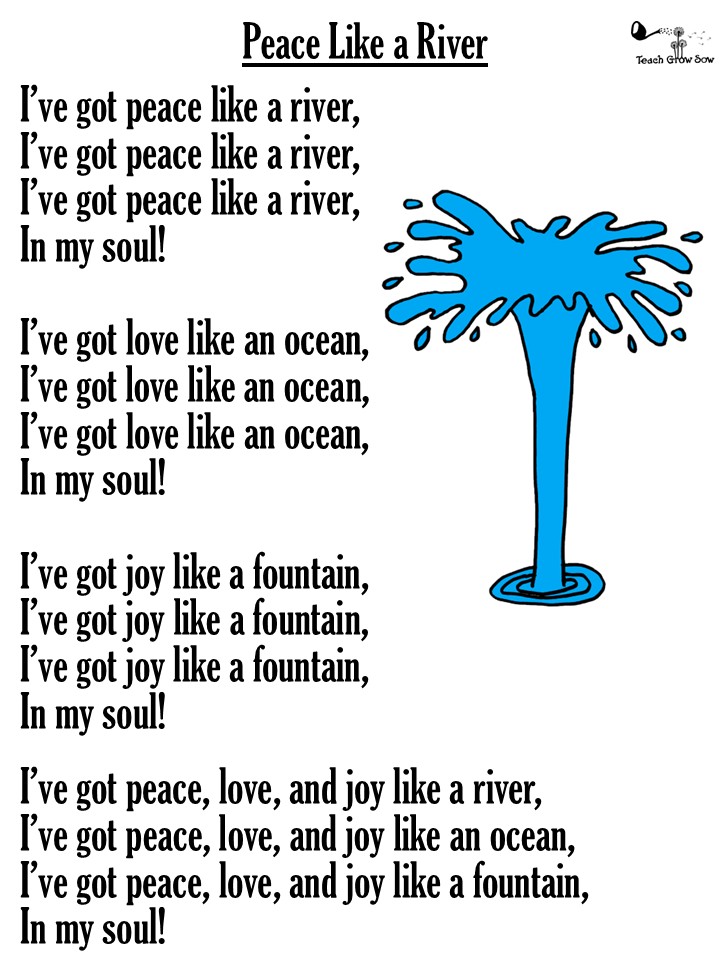
Lower Elementary
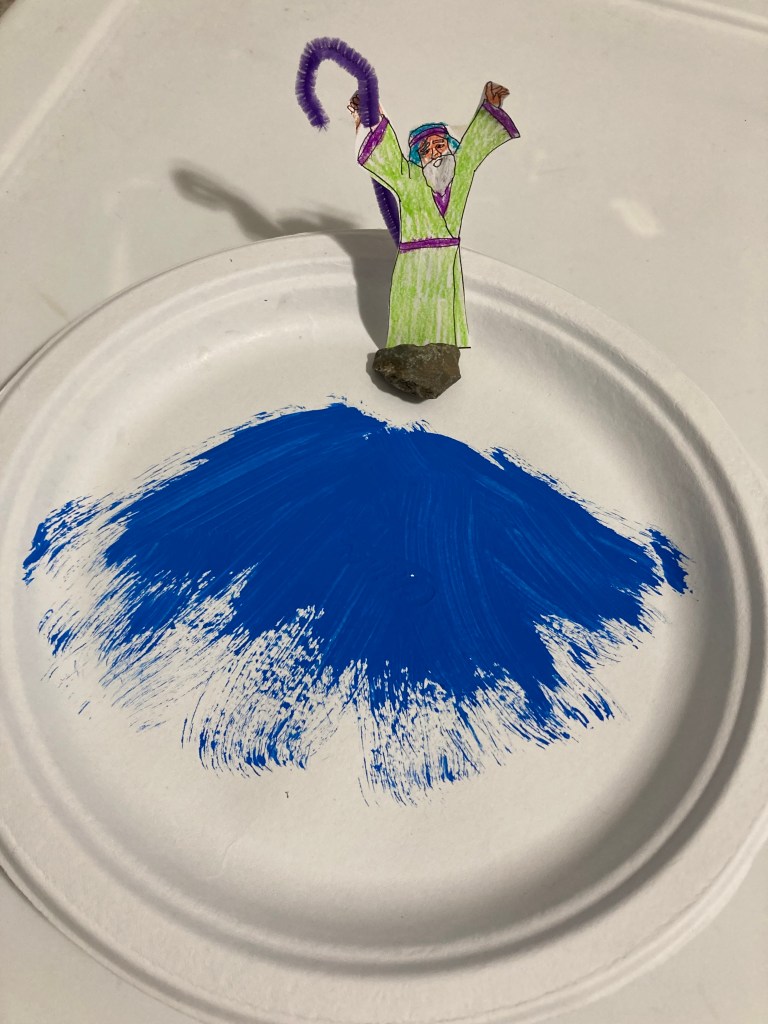
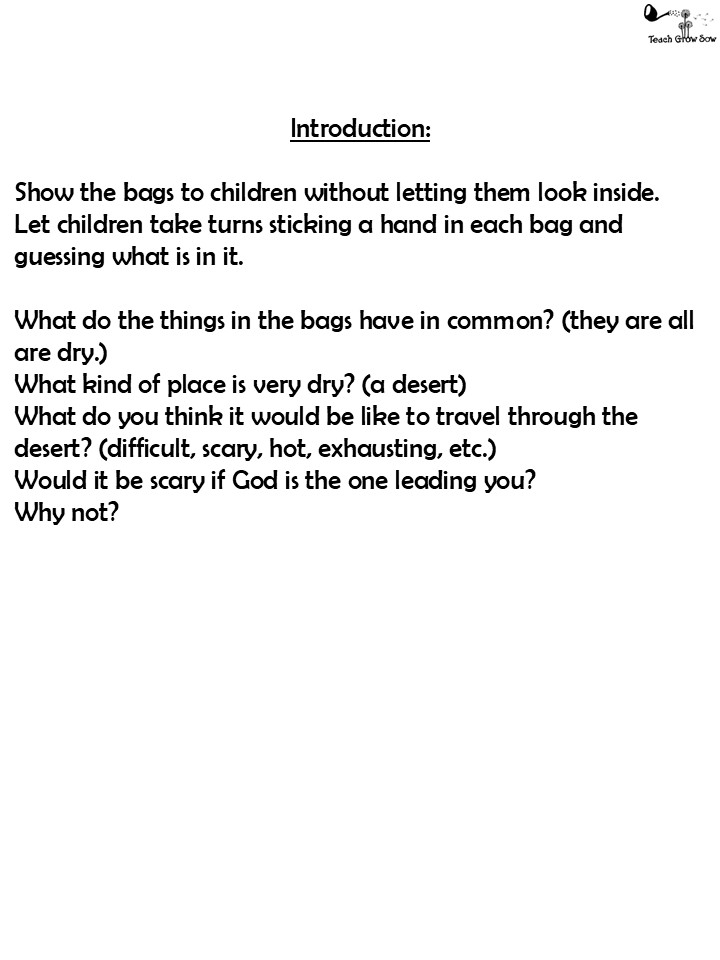
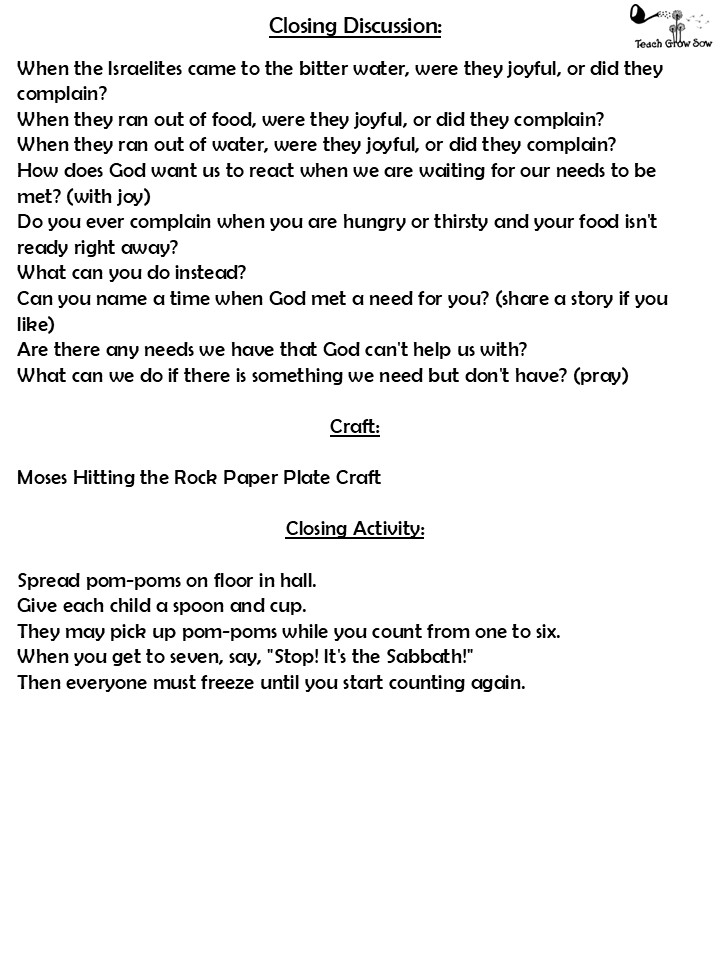
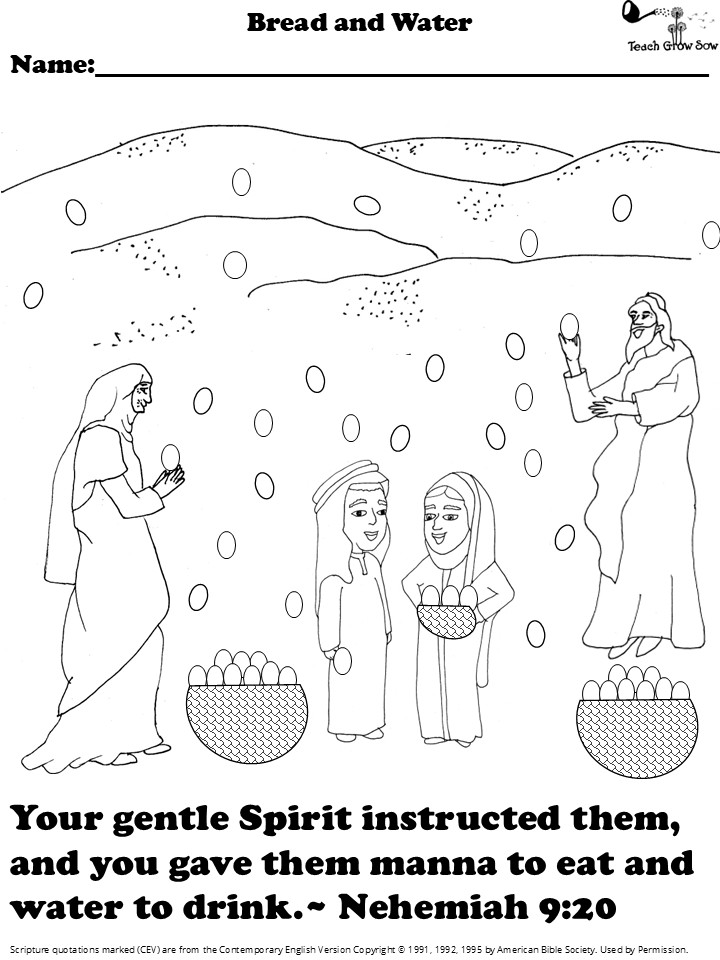
Upper Elementary
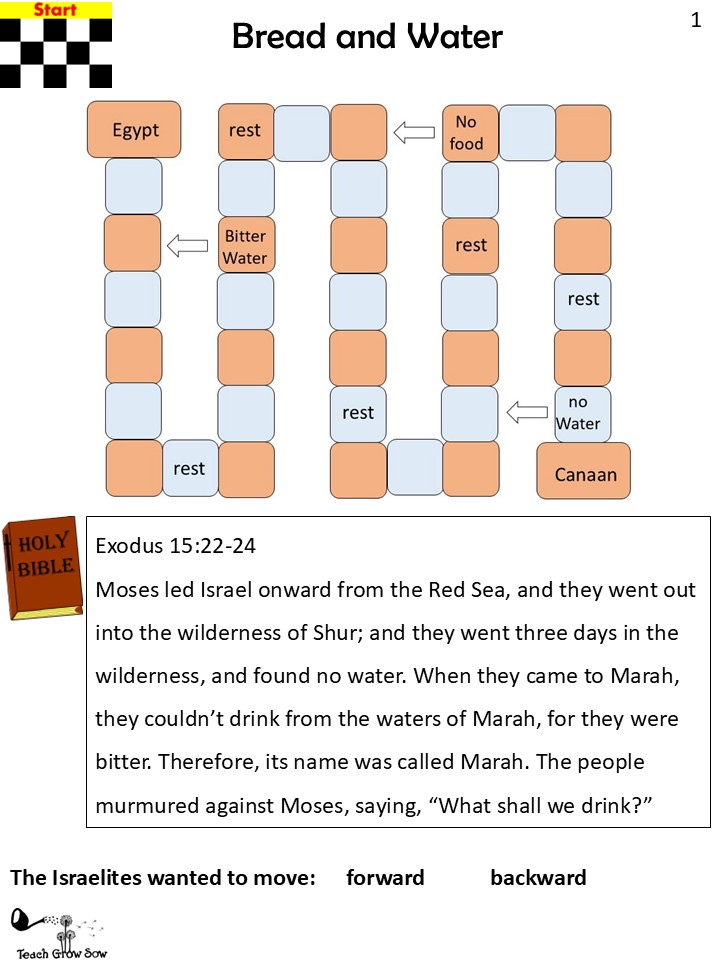

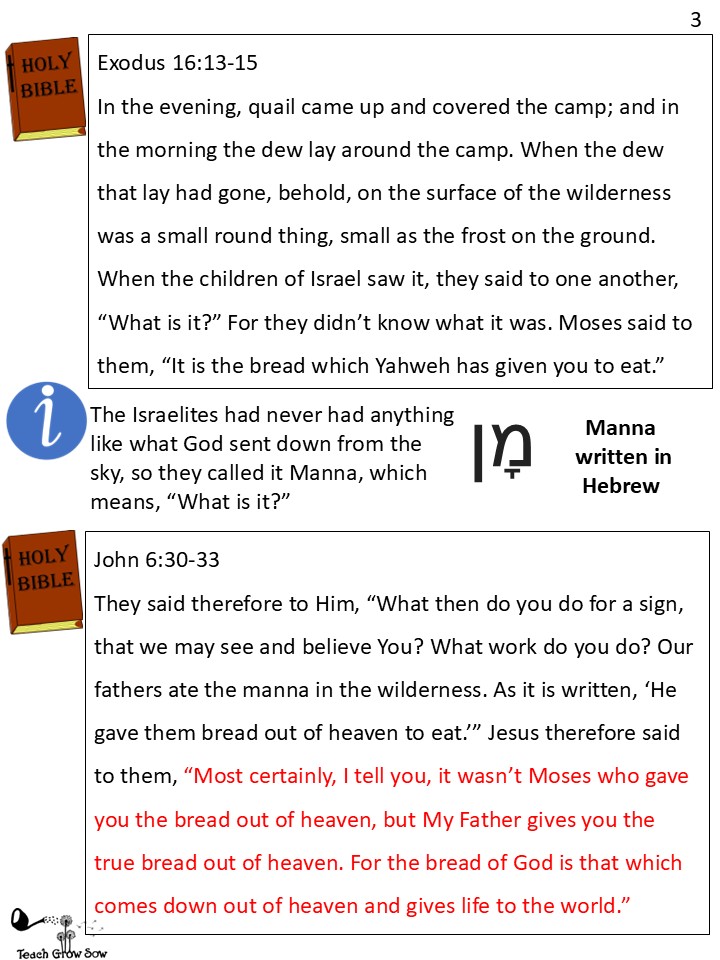

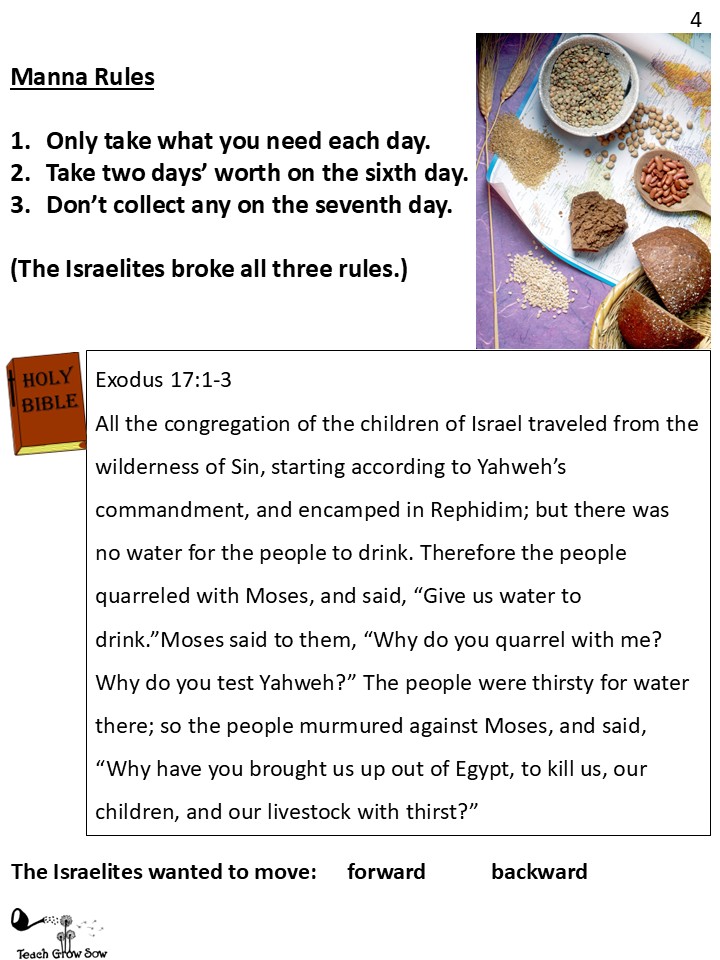
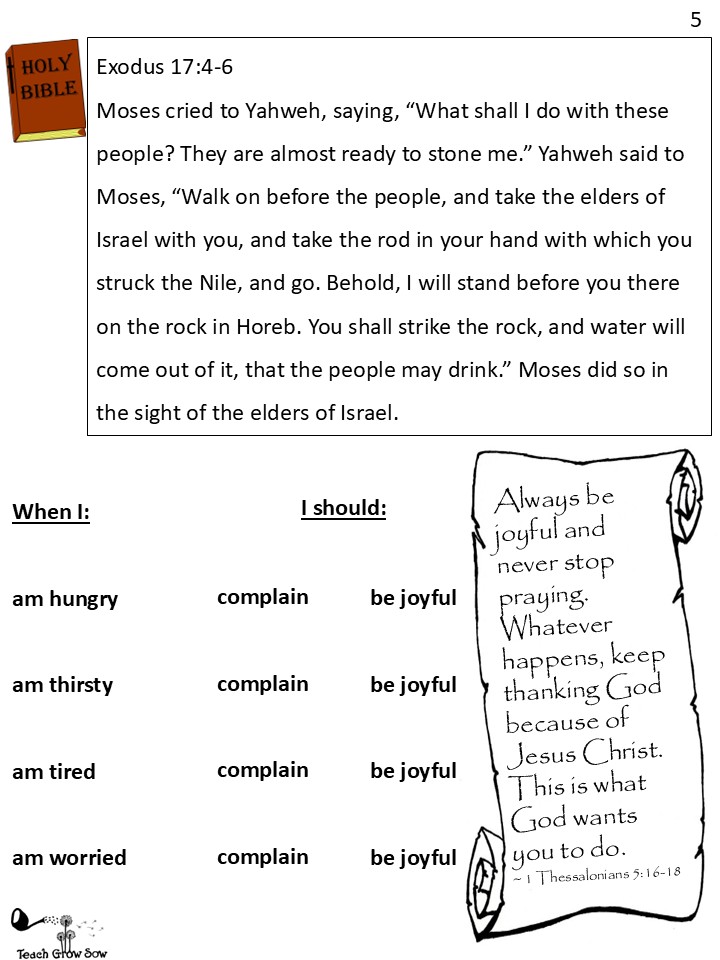
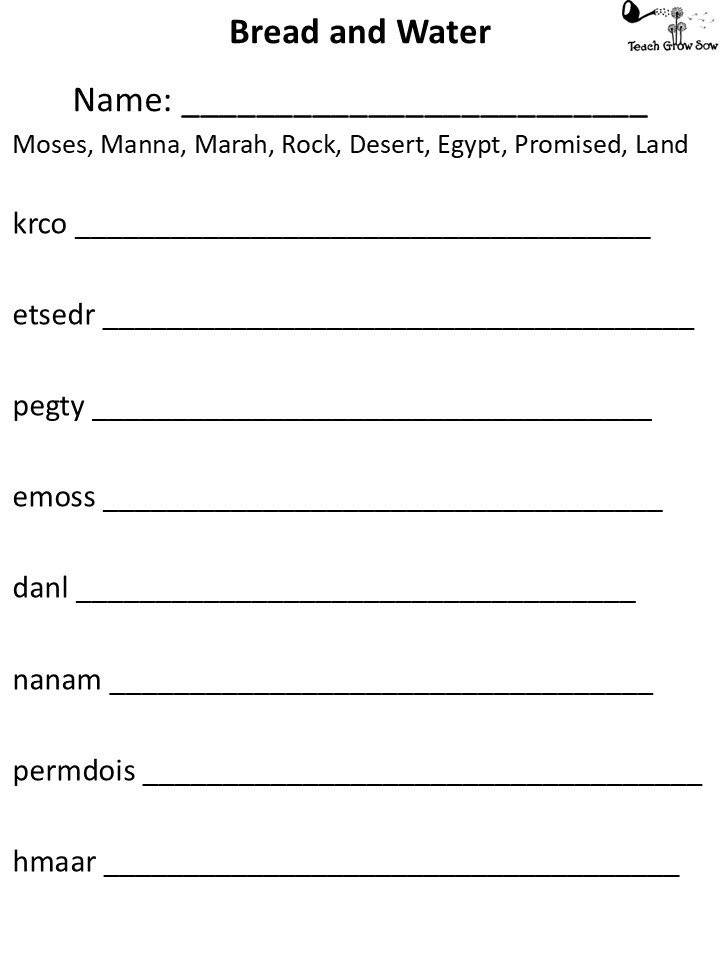
Next Lesson:
All Lessons:
Want to get a monthly digest of all that’s new at Teach Grow Sow?
Click here to follow on Facebook and Pinterest.
Have questions or feedback? Email:
teachgrowsow@gmail.com
